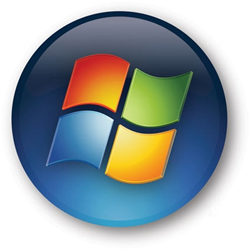 The web is currently ablaze with headlines that IE8 will not be included in the European release of Windows this fall. In fact, no browser at all is going to be included with the latest version of Microsoft’s operating system. No, Hell has not frozen over — the news is the result of Microsoft’s longstanding (and very costly) antitrust issues with the European Commission. And it has everyone, from the regulators to consumers to IE competitors, very upset. Fortunately, it seems like this is much ado about nothing.
The web is currently ablaze with headlines that IE8 will not be included in the European release of Windows this fall. In fact, no browser at all is going to be included with the latest version of Microsoft’s operating system. No, Hell has not frozen over — the news is the result of Microsoft’s longstanding (and very costly) antitrust issues with the European Commission. And it has everyone, from the regulators to consumers to IE competitors, very upset. Fortunately, it seems like this is much ado about nothing.
The way some people are portraying it, it’s as if millions of computer users are suddenly going to be left Internet-less, isolated on their home PCs without any hope of ever reaching the web beyond. But an important statistic that some major news outlets are failing to highlight (though most others are pointing out) is that the vast majority of people won’t notice the change at all. That’s because PC makers — your Dells, HPs, etc. — will be able to install IE8 before their computers ever reach the consumer. And you can be sure that for nearly all of computers they sell, they’re going to do just that.
But what about that 5% of users that are buying the the OS in a retail store? For one, consider the fact that many of the people taking the initiative to actually go out and buy Windows 7 are perfectly capable of finding a way to install Firefox or IE on their computers. But what about everyone else? Microsoft has made it clear that it’s going to offer IE on an “easy-to-install basis“, which includes distribution via “via CD, FTP, and retail channels”.
In other words, every single computer store you walk into is going to have giant displays inviting you to grab your Internet Explorer pack. At checkout, your friendly clerk is going to remind you to make sure you grab one. If you find yourself walking out of the store without an IE CD, it’s almost certainly because you made the decision not to. In the incredible event that you do install the OS and can’t figure out where your browser went, there will likely be a hotline at Microsoft dedicated to answering this exact question. No, it’s not going to be especially user-friendly (at least compared to having the application pre-installed). But this is hardly going to be a crisis.
Now, it’s easy to decry Microsoft for this move, but it’s also pretty easy to understand why they’re doing it. The company is eager to launch Windows 7 on time, and it isn’t too keen to hand over another 1.7 billion euros in fines. It also doesn’t want to resort to the so-called “ballot screen which would present a list of alternative browsers during the OS’s first boot, which is one of the solutions being proposed. Microsoft may work out (or be forced to use) an alternative solution, but in the mean time this should help the company avoid any further fines. It’s also a way for Microsoft to effectively tell the European Commission to piss off.